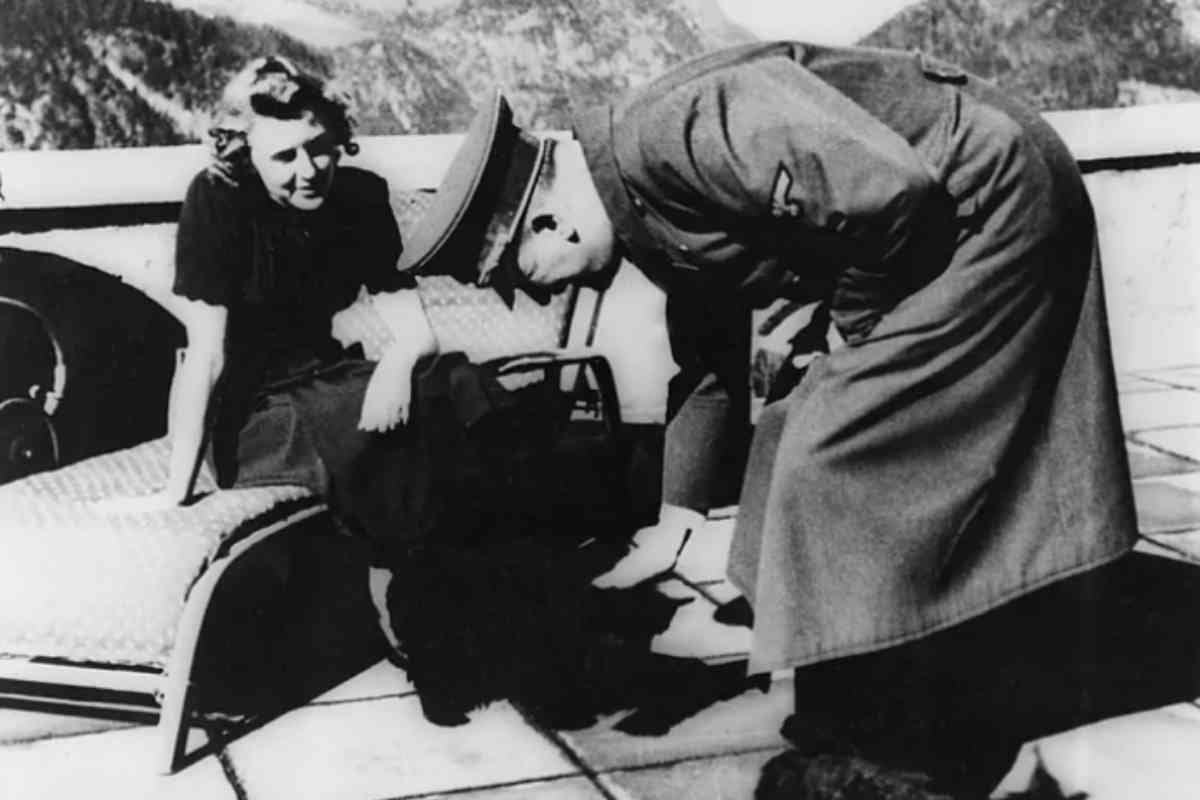- History: Heinrich Himmler, the day he betrayed Hitler and saved the life of his wife and daughter
- Relationships.Eva Braun, the girl who swore to be an Aryan to die as the wife of the defeated 'führer'
Adolf Hiter was a lycanthrope, he believed in the power of man to transform into a wolf. He called his first military headquarters on the eastern front Wolfsschaze (wolf's den). In Belgium he used the code name Wolfsschlucht (wolf gully) and in Ukraine Werwolf (werewolf). When her sister Paula informed her of the problems caused by her family name, Adi , as it was known in her family, suggested that she change it to "Wolf". She did, she lived in practically seclusion as Mrs. Wolf. The farce ended his death on June 1, 1960, now 60 years ago. She was buried with her father's last name,but there is no trace of it. The grave that Paula Hitler occupied in the Bavarian cemetery in Berschtesgaden was released in June 2005, after 45 years.
Paula was the youngest in the family formed by Klara and Alois Hitler in what for him was their third marriage (the couple's first three children died before Adolf was born). "My parents were very happy despite having very different characters. She was very affectionate, my roughest father, especially with Adolf. They didn't get along well. My father even hit him," Paula said in the only interview she gave to him. Throughout his life, a historical document dated June 5, 1946 that provides many details about the dictator's personality.
Alois Hitler died in 1903 of cardiac arrest, after which Adolf, seven years older than Paula, left for Vienna. Paula, only six years old, stayed with her mother in Linz. "I barely received letters from my brother and when I was writing it was to recommend books. One time he sent me Don Quixote because he thought I would have a lot of fun," he said. Four years after Alois' death, Klara died of breast cancer. For Hitler, who had veneration for his mother, it was a difficult trance. And he began to behave towards his sister with the violence that his father used with him.
The fraternal relationship cooled in 1908, when she, at the age of 12, tried to persuade him not to join the Army. "He stopped writing to me and I only saw him again, 13 years later in Vienna, where I moved in the meantime. He told me that he had gone to live in Munich, pursuing the dream of becoming a painter, he told me about his experiences during the war , from his comrades, from his injuries and he gave me gifts, which for me, who lived very modestly, was a luxury. He was already leader of the National Socialist Party. I was glad he did well. Then he returned to Munich and I stayed in Vienna earning a living as a secretary in a petty office. "
In 1930, when the surname Hitler began to smell gunpowder, Paula was fired, despite the fact that she was never interested in politics or affiliated with the Nazi party. It did him no good to have worked in a residence for Jewish university students and that no one could have accused him of revealing information that harmed the residents. "Given the difficulties I was going through I went to Munich to talk to my brother. He suggested that I change my name and promised to take care of me. Until his death, I received 500 marks a month and 3,000 for Christmas . " In 1941 I helped him buy a little house.
That, including an invitation to Berghof, where he met Eva Braun, was what he did for her. Paula paid more expensive. She lived with a false identity, almost in poverty and alone. At one of her meetings in Vienna, Paula told her brother that she had become engaged to an officer named Erwin Jekelius. The officer in question was one of the leaders of the Third Reich, responsible for at least 4,000 deaths in the gas chambers. The link never took place. Hitler not only banned it, but had Jekelius arrested and sent to the Eastern Front, where he died as a prisoner of war in a Soviet camp.
At the end of the war, Paula was detained in Bavaria by the US Army, interrogated and released. They found no charges against her, despite which her bank accounts were expropriated. In the final part of her first statement to the Americans, Paula confessed that her brother's final destiny affected her greatly: "He was my brother, no matter what happened. His ending brought me indescribable sadness as a sister."
Paula returned to Vienna, where she lived on the charity of her friends and the small salary provided by the craft store where she started working. In 1952 he returned to Germany to disappear among its ruins.
In accordance with the criteria of The Trust Project
Know more- Adolf Hitler
Protagonists of the coronavirus The grandmother who defeated Hitler and today fights against the coronavirus
Post-pandemic The defeat of the swastika: the possibility of a new Hitler
History Heinrich Himmler, the day he betrayed Hitler and saved the life of his wife and daughter

